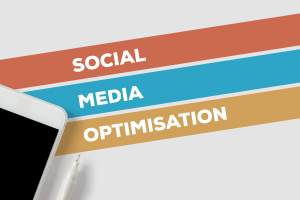By 2030, Singapore’s digital future has fully come to life. The city hums with smart systems—AI quietly runs everything from traffic lights to hospital operations, and yes, even your favourite social media ads. Gone are the days when social media marketing was all guesswork and chasing trends. Thanks to Artificial Intelligence, it’s now a precise, data-driven engine that helps brands speak directly to the right people, at the right time, in the right tone.
In this version of Singapore, the Smart Nation vision isn’t just a government slogan—it’s everyday reality. Businesses, big and small, rely on AI to craft content, track customer behaviour, and respond in real time. Whether you’re ordering kopi through an AI-powered chatbot or discovering a new local fashion label because of a hyper-personalised Instagram ad, AI is working behind the scenes to shape your digital journey. It’s not just transforming how companies market—it’s redefining how they build trust, relevance, and relationships in a city that’s always ahead of the curve.
Hyper-Personalisation at Scale
One of the most transformative effects of AI in social media marketing lies in its capacity to deliver hyper-personalised content at an unprecedented scale. Platforms now use AI to analyse a user’s browsing habits, location, preferences, and even linguistic nuances like Singlish to curate content that feels tailor-made.
Singaporean e-commerce platforms integrate AI with social media APIs to push product recommendations in real time—imagine a user browsing durian desserts on Instagram and instantly seeing geo-targeted promos from nearby dessert cafés in Bedok or Serangoon. Retailers like Love, Bonito and Charles & Keith are already experimenting with AI-powered personalisation to enhance user experience, and the trend is only accelerating.
Predictive Analytics and Consumer Behaviour
AI also equips brands with predictive analytics that anticipate customer behaviour based on patterns drawn from massive datasets. These insights enable businesses to respond to emerging trends with agility, giving them a competitive edge.
Consider a local F&B chain in Singapore using AI to analyse social chatter during the Hari Raya season. By monitoring sentiments, hashtags, and engagement trends, the system identifies a spike in interest for traditional kuih desserts. The chain adjusts its marketing accordingly—rolling out a kuih-themed social campaign and limited-time offers, just in time to meet consumer demand.
In another example, a fashion retailer in Orchard might harness AI to study influencer posts across Southeast Asia. By identifying which colour palettes, styles, or accessories are gaining traction, the retailer can pre-emptively stock inventory for upcoming collections and create content aligned with those trends.
Automated Content Creation and Optimisation
Creating compelling content used to be one of the most resource-intensive aspects of social media marketing. Today, AI is not only generating written posts but also creating visuals and short-form videos tailored to specific audiences.
AI tools like Canva’s Magic Write or ChatGPT-powered copy generators can suggest captions incorporating local phrases like “lah,” “shiok,” or “bo jio” to resonate with Singaporean audiences. Likewise, image generators are producing culturally contextualised graphics—be it lanterns during Mid-Autumn Festival or rangoli patterns for Deepavali.
However, this efficiency comes with ethical and creative concerns. Over-reliance on AI risks producing content that feels generic or inauthentic. Marketers must walk a fine line—leveraging AI to scale content while maintaining a human touch to ensure cultural sensitivity and originality.
Enhanced Customer Service and Engagement
Customer engagement is no longer limited to business hours or human agents. AI-driven chatbots and virtual assistants now manage a majority of customer interactions on platforms like Facebook Messenger, Instagram, and WhatsApp.
For instance, Singtel’s chatbot “Joy” and DBS’s “Digibot” are capable of answering account-related queries, troubleshooting issues, and even recommending products—available 24/7, with fluency in multiple languages. Social sentiment analysis tools like Brandwatch and Sprinklr are also helping brands in Singapore monitor real-time feedback, enabling them to respond proactively to both praise and complaints.
This automation empowers human agents to focus on more complex queries and build deeper relationships with high-value customers, thus elevating the overall service experience.
The Evolving Role of the Human Marketer
Far from being replaced, human marketers in Singapore are becoming more critical than ever. The rise of AI shifts their focus from manual tasks to strategic thinking, storytelling, and brand management.
Future-ready marketers will need hybrid skillsets—proficiency in data analytics, ethical AI understanding, and creativity in content design. They’ll also take on roles as AI interpreters, ensuring that insights generated by algorithms are aligned with brand values and business goals.
AI is not a threat; it’s an enabler. It amplifies human capabilities rather than replacing them. As marketing becomes more data-driven, the ability to combine empathy with evidence-based decision-making becomes a marketer’s superpower.
Ethical Considerations and Data Privacy in Singapore
Singapore is recognised globally for its stringent data protection laws and forward-looking AI governance. The Personal Data Protection Act (PDPA) and frameworks like AI Verify and the Model AI Governance Framework are shaping a secure environment for digital innovation.
These regulations demand transparency, accountability, and human oversight in AI deployments. Businesses must ensure that user data used for personalisation and predictive analytics is handled with explicit consent and anonymised where necessary.
For example, if a social media campaign leverages location data to send personalised offers, it must clearly inform users and allow opt-out options. Failure to comply not only risks legal penalties but can erode consumer trust—arguably the most valuable currency in the digital economy.
For more on AI ethics and Singapore’s regulatory frameworks, refer to:
- AI Verify by IMDA
- Model AI Governance Framework
The “Smart Nation” Vision and AI in Social Media
The evolution of AI-driven social media marketing fits seamlessly into Singapore’s Smart Nation ambition—a vision of integrating technology across every domain to improve lives and create economic opportunities.
Social media, as a vital communication and commerce channel, is a key component. AI enables smart engagement between businesses and citizens, promotes digital literacy, and supports inclusive economic participation. SMEs can now compete with larger brands thanks to affordable, AI-driven marketing tools, reducing traditional entry barriers.
Furthermore, as Singapore continues to invest in AI R&D, digital infrastructure, and talent development, we can expect homegrown innovations that redefine global best practices in social media marketing.
Challenges and Opportunities Ahead

For all its promise, AI adoption in social media marketing isn’t without challenges:
- Data Bias: AI systems trained on incomplete or biased datasets could generate misleading insights.
- Over-Automation: Removing the human touch can harm brand authenticity and engagement.
- Skill Gaps: Many marketers still lack the necessary data literacy or AI fluency to maximise these tools.
However, the opportunities are equally compelling:
- Efficient ROI: AI reduces content creation costs and increases targeting precision.
- Real-Time Feedback Loops: Instant analytics enable agile campaign adjustments.
- Global Reach, Local Voice: With AI, brands can scale globally while staying locally relevant.
Conclusion: A Harmonious Future of Humans + Machines
As Singapore journeys deeper into its Smart Nation era, the fusion of AI and social media marketing is not just inevitable—it’s essential. Businesses that embrace this evolution will find themselves ahead of the curve, enjoying deeper engagement, smarter insights, and stronger customer loyalty.
Yet, the human touch remains irreplaceable. In a world increasingly automated, authenticity, empathy, and creativity will define the most successful brands. The future belongs not to AI alone, but to marketers who can harness its power ethically and intelligently.




